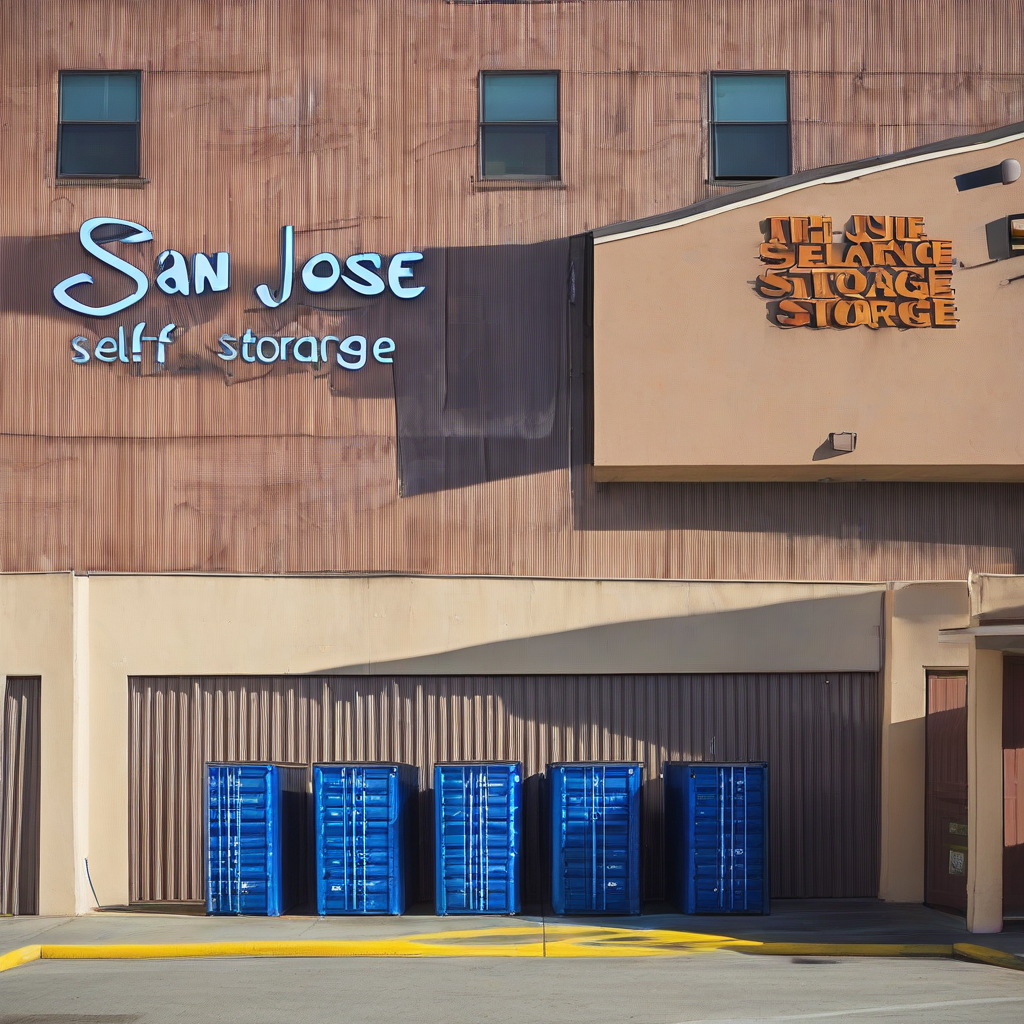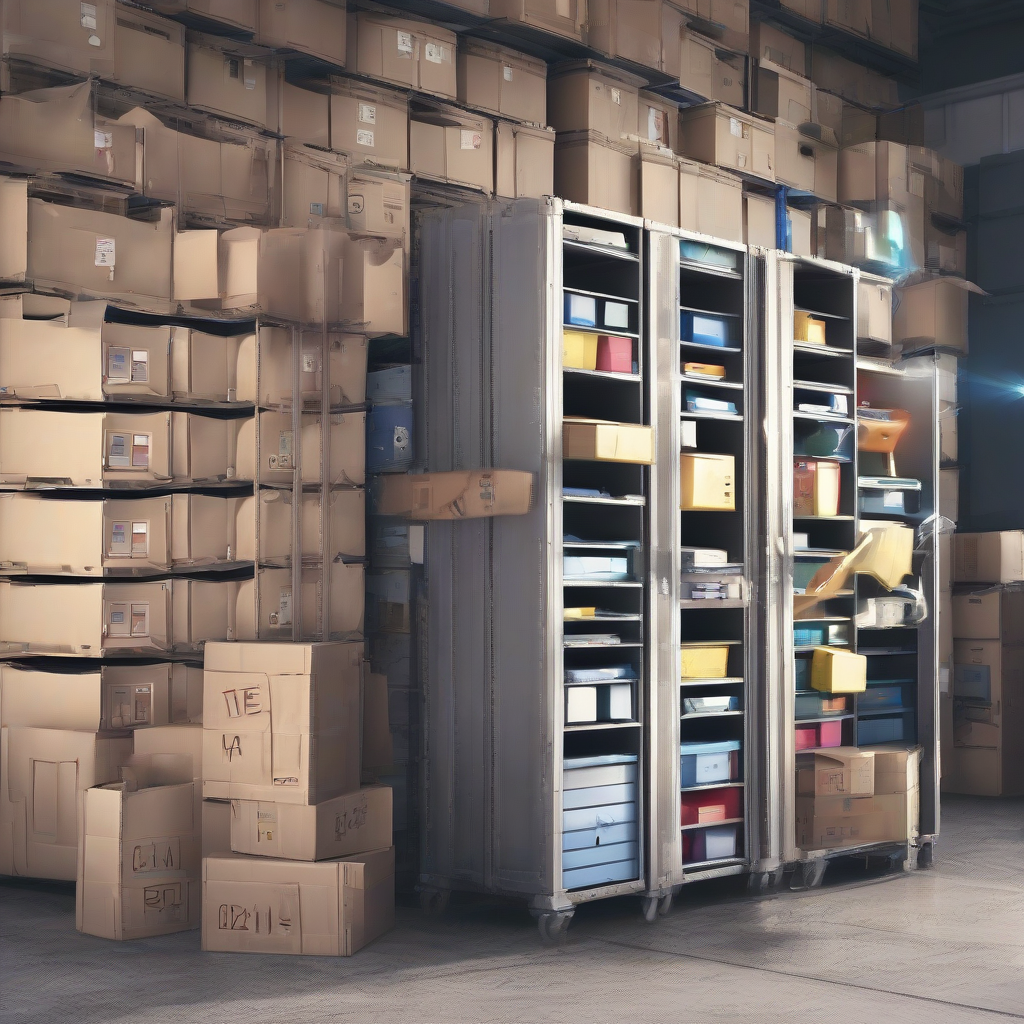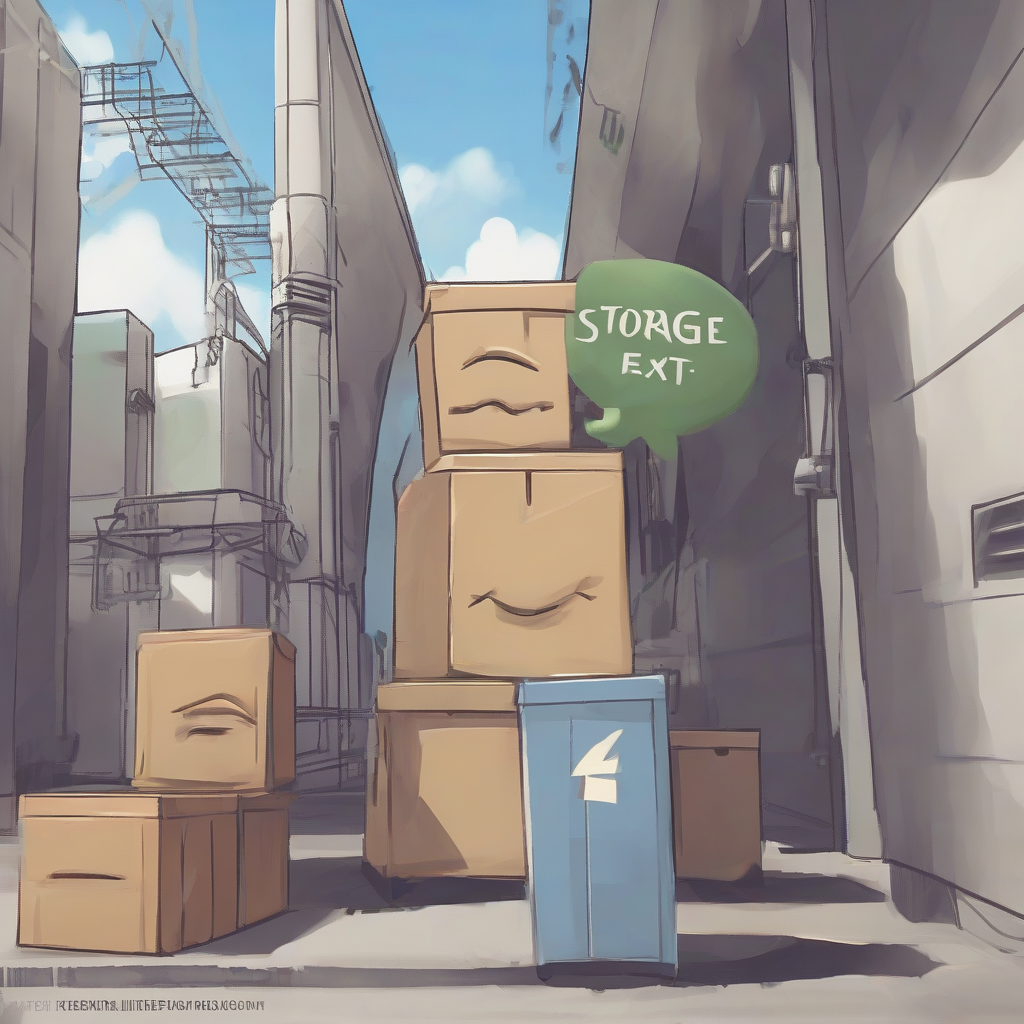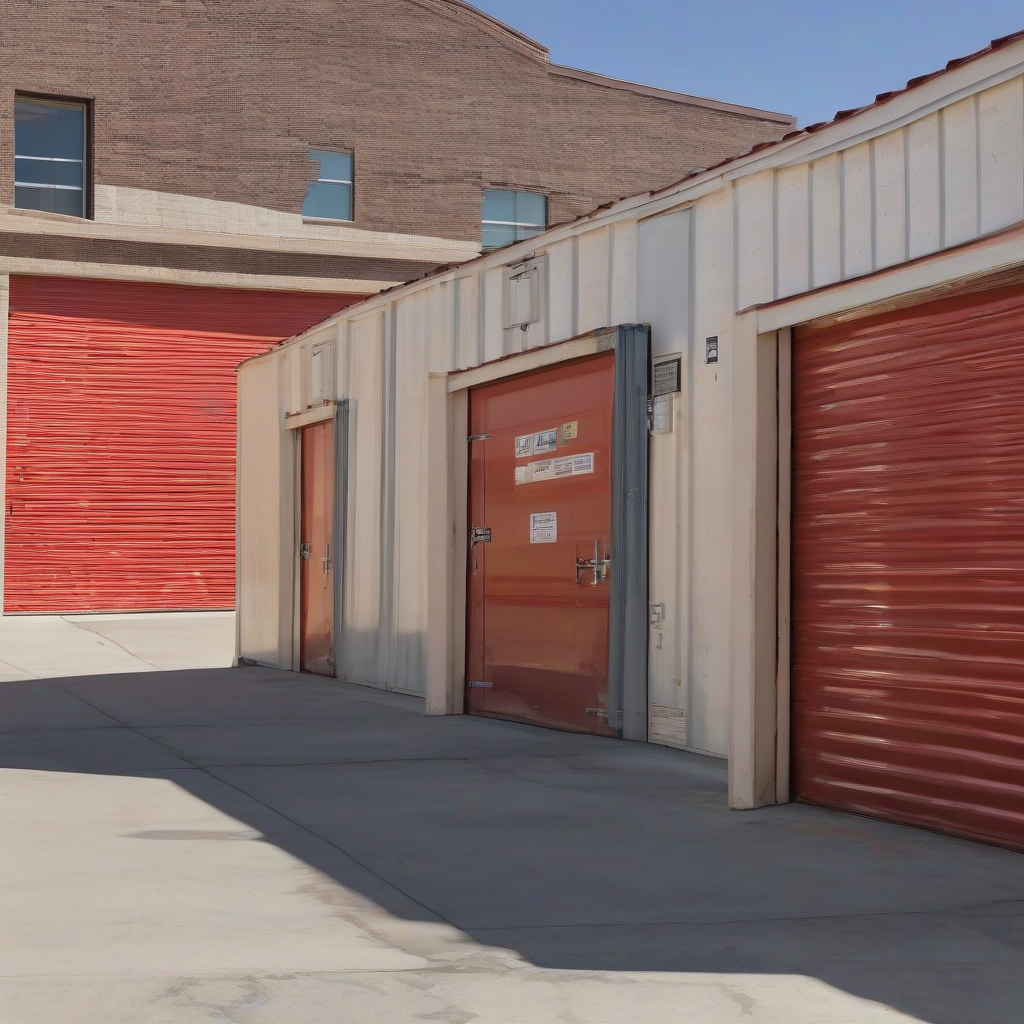Self Storage: A Comprehensive Guide for Individuals and Businesses
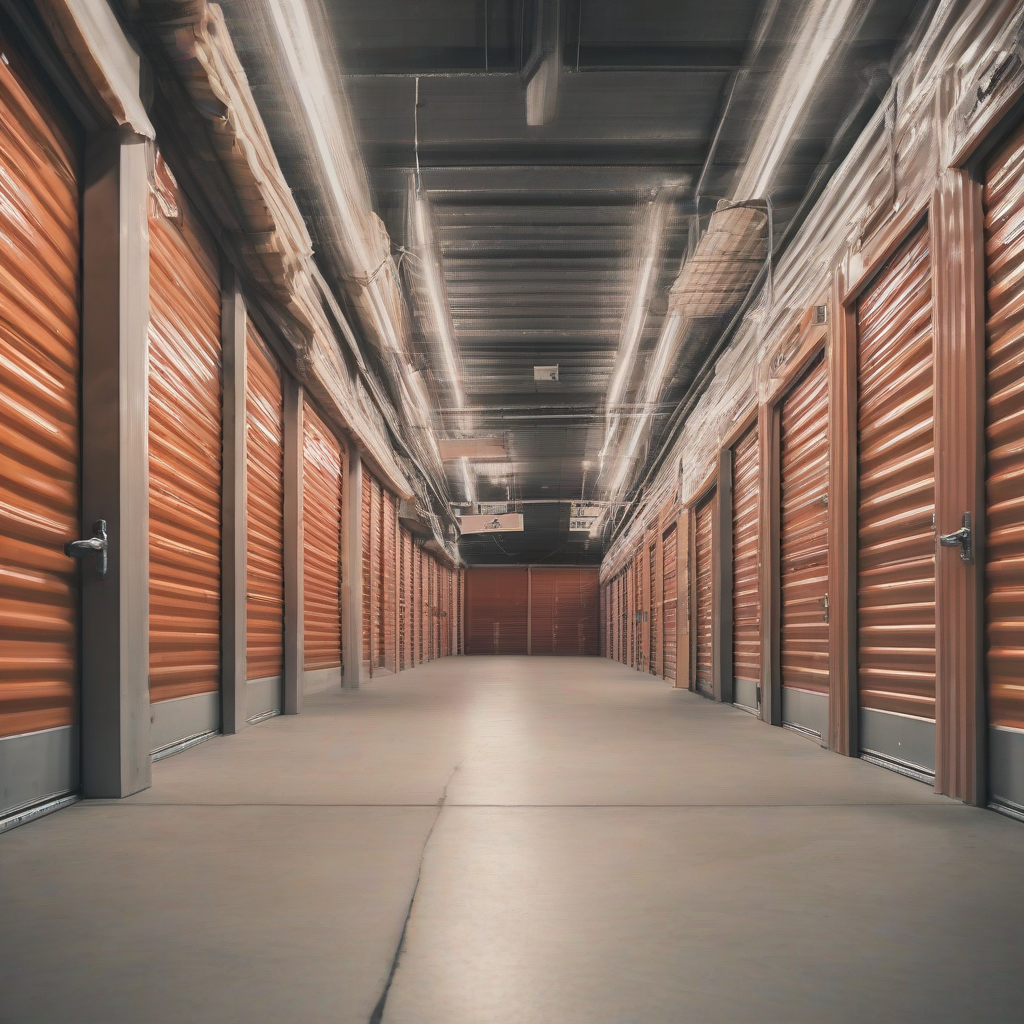
Self Storage: A Comprehensive Guide for Individuals and Businesses
Introduction
In today's fast-paced world, where space is a valuable commodity, self storage has emerged as a vital solution for individuals and businesses alike. Whether you're dealing with a temporary relocation, decluttering your home, or needing extra space for your business inventory, self storage offers a secure and convenient way to manage your belongings.
This comprehensive guide delves into the world of self storage, exploring its various aspects, benefits, and considerations. We'll cover topics including:
- Types of Self Storage Units
- Factors to Consider When Choosing a Self Storage Facility
- The Cost of Self Storage
- Security Measures and Insurance Options
- Tips for Organizing and Storing Your Belongings
- Legal Aspects of Self Storage
- Self Storage for Businesses
- The Future of Self Storage
Types of Self Storage Units
Self storage facilities offer a variety of unit sizes to cater to diverse needs. Here's a breakdown of common types:
- Small Storage Units: Ideal for storing personal items like seasonal clothing, books, or small furniture pieces. Often range from 5x5 to 10x10 feet.
- Medium Storage Units: Suitable for larger belongings, such as furniture, appliances, or sporting equipment. Typically range from 10x10 to 10x20 feet.
- Large Storage Units: Best for storing items like vehicles, boats, or large quantities of household goods. Can be as large as 10x30 feet or more.
- Climate-Controlled Units: Provide temperature and humidity control, perfect for storing sensitive items like electronics, artwork, or valuable documents.
- Drive-Up Units: Accessible by vehicle, allowing for easy loading and unloading of bulky items.
- Business Storage Units: Specifically designed for business needs, offering secure and efficient storage for inventory, equipment, and records.
Factors to Consider When Choosing a Self Storage Facility
Selecting the right self storage facility is crucial for a smooth and hassle-free experience. Here are some key factors to consider:
- Location and Accessibility: Choose a facility that's conveniently located and easily accessible, considering your daily commute and transportation options.
- Unit Size and Type: Determine the amount of space you need and select a unit size that adequately accommodates your belongings. Consider climate-controlled or drive-up options based on your specific needs.
- Security Features: Look for facilities equipped with security cameras, perimeter fencing, gated access, and on-site security personnel to protect your belongings.
- Storage Unit Conditions: Inspect the condition of the storage units, ensuring they are clean, dry, and free from pests or leaks.
- Rental Agreement and Policies: Carefully review the rental agreement, paying attention to terms like lease duration, payment options, late fees, and insurance requirements.
- Customer Service and Reputation: Choose a facility with a positive reputation for customer service, responsiveness, and clear communication.
- Pricing and Fees: Compare rates from different facilities, considering factors like unit size, amenities, and rental duration. Be aware of potential additional fees for insurance, late payments, or unit cleaning.
The Cost of Self Storage
Self storage costs vary significantly depending on several factors, including:
- Location: Urban areas tend to have higher storage rates than rural areas.
- Unit Size: Larger units cost more than smaller units.
- Amenities: Features like climate control, drive-up access, and security systems increase costs.
- Rental Duration: Long-term leases often result in lower monthly rates.
- Demand: Storage rates can fluctuate based on demand in the market.
It's essential to obtain quotes from multiple facilities and compare their pricing structures before making a decision.
Security Measures and Insurance Options
Protecting your belongings in self storage is paramount. Facilities typically implement security measures such as:
- Fencing and Gated Access: Limiting access to the storage facility to authorized personnel.
- Security Cameras: Monitoring activity on the premises.
- Lighting: Ensuring adequate illumination throughout the facility.
- Alarm Systems: Detecting unauthorized entry or suspicious activity.
- On-Site Security Personnel: Providing a physical presence and deterring crime.
However, it's wise to consider additional insurance coverage to protect yourself against potential losses due to theft, fire, or natural disasters. Most self storage facilities offer insurance options, and it's advisable to purchase coverage that meets your specific needs.
Tips for Organizing and Storing Your Belongings
Efficiently organizing and storing your belongings can maximize space and ensure easy retrieval when needed. Here are some valuable tips:
- Declutter and Sort: Before storing, declutter your possessions by getting rid of items you no longer need or use. Sort items into categories for easier organization.
- Pack Smart: Use sturdy boxes and clear plastic bins for easy identification and stacking. Label each container clearly and list its contents.
- Maximize Vertical Space: Utilize shelves and stacking boxes to take advantage of vertical space and avoid wasting floor area.
- Protect Fragile Items: Wrap delicate items in bubble wrap or packing peanuts to prevent damage. Securely pack and label fragile items as "Fragile" or "Handle With Care."
- Avoid Overpacking: Don't overfill boxes or make them too heavy. This can make them difficult to lift, transport, and stack safely.
- Keep Important Documents Separate: Store valuable documents such as financial records, legal documents, and insurance policies in a fireproof safe or separate, easily accessible container.
- Create an Inventory: Maintain a detailed inventory list of all items stored, including descriptions, dates, and box numbers. This will facilitate retrieval and recordkeeping.
Legal Aspects of Self Storage
Self storage is governed by specific laws and regulations. Understanding these legal aspects is crucial for renters and facility owners alike.
- Rental Agreements: Carefully review the rental agreement, paying attention to lease terms, payment obligations, eviction procedures, and lien laws.
- Lien Laws: Facilities have the right to place a lien on your belongings if you fail to pay rent. Familiarize yourself with lien laws to ensure you understand your rights and responsibilities.
- Eviction Procedures: Understand the procedures for evicting tenants from storage units, including proper notice requirements and legal options for disputing eviction.
- Liability: Be aware of the facility's liability for damage or loss of your belongings. Most facilities have clauses in their rental agreements that limit their liability. Consider additional insurance coverage to protect your interests.
Self Storage for Businesses
Self storage can be a valuable resource for businesses of all sizes. It provides a secure and cost-effective solution for:
- Inventory Storage: Storing excess inventory, seasonal goods, or surplus merchandise.
- Equipment Storage: Housing tools, machinery, or vehicles not in regular use.
- Records Storage: Archiving business records, legal documents, or sensitive information.
- Office Space Expansion: Creating additional workspace for employees or projects that require temporary storage.
- Retail Business Storage: Housing backstock, merchandise displays, or seasonal inventory.
When selecting self storage for business purposes, prioritize security, accessibility, and cost-effectiveness. Consider features like climate control, drive-up access, and 24/7 access if necessary.
The Future of Self Storage
The self storage industry is continuously evolving, driven by factors such as urbanization, changing lifestyles, and technological advancements. Some future trends include:
- Increased Demand: As populations grow and living spaces become more compact, demand for self storage is expected to increase.
- Technology Integration: Digital platforms and mobile applications will play a greater role in booking units, managing payments, and accessing facility information.
- Innovative Storage Solutions: New storage concepts and solutions, such as micro storage units, mobile storage containers, and on-demand storage services, are emerging.
- Sustainability Focus: Facilities are increasingly incorporating sustainable practices, such as energy efficiency and waste reduction initiatives.
The self storage industry is poised for growth and innovation, offering convenient and flexible solutions for individuals and businesses alike.
What's Your Reaction?










